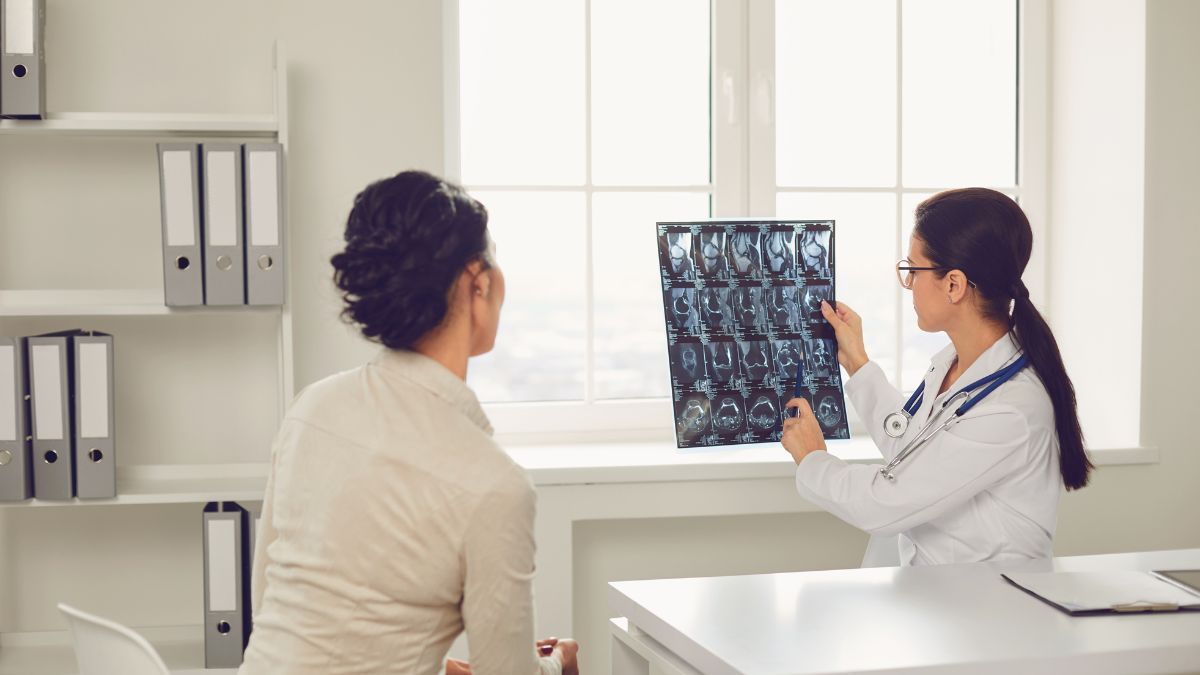“This blog talks about how MRI imaging can help find diseases that are hard to find especially multiple sclerosis. It does this by giving clear information when symptoms are unclear, with a focus on patient comfort and early detection.”
Unlocking Answers Through Advanced MRI Imaging
At Encino Open MRI we know how frustrating it can be when symptoms do not have clear answers. A lot of the time patients come to us after seeing a lot of different doctors and not getting a diagnosis. That is why MRI imaging is such an important part of modern diagnostics it may show things that other techniques might miss. Multiple sclerosis MS is one of the hardest diseases to diagnose but MRI can help find it early and precisely.
Why Diagnosing Multiple Sclerosis Is So Challenging?
Multiple sclerosis is autoimmune disease in which immune system assaults the protective coating around nerve fibers in the brain and spinal cord. It has varied effects on different people. Symptoms can be unclear or look like those of other diseases. These may include:
- Blurred vision
- Muscle weakness
- Fatigue
- Tingling or numbness
- Balance issues
Because these signs overlap with other conditions, MS often goes undetected for months or even years. That’s where MRI steps in.
How MRI Detects Multiple Sclerosis?
MRI is currently the most effective tool to identify MS. It helps visualize changes in the brain and spinal cord by detecting lesions—damaged areas caused by the immune system’s attacks.
With MRI, we can:
- Detect early-stage lesions before symptoms worsen
- Track disease progression over time
- Evaluate treatment response
Our team uses high-resolution imaging sequences that capture fine details of brain tissue, which are crucial for an MS diagnosis.
What to Expect During an MS MRI?
At our center we make the process as stress free as possible. If your neurologist suspects MS they may order an MRI of the brain and spinal cord. You will be asked to lie comfortably in our open MRI scanner no tight tubes or unnecessary anxiety.
We may use contrast dye gadolinium to enhance lesion visibility. The scan usually takes 30 60 minutes. You will be able to relax and our technicians will check in with you throughout the session.
Other Conditions MRI Can Help Detect Early
Although multiple sclerosis is one of the most difficult diseases to diagnose without imaging, other conditions can also hide beneath the surface:
- Brain Tumors: Many tumors show subtle signs in early stages. MRI detects masses with extreme clarity, allowing early intervention.
- Spinal Cord Disorders: Back pain isn’t always muscular. MRI finds herniated discs, spinal stenosis, and other problems invisible to X-rays or physical exams.
- Epilepsy and Seizure Disorders: Structural changes in the brain such as scar tissue or small malformations can be detected via MRI. This helps neurologists plan better treatment.
- Dementia and Alzheimer’s Disease: MRI shows brain shrinkage and changes in key memory areas before symptoms become severe. Early detection can slow disease progression.
- Joint and Soft Tissue Damage: MRI also reveals torn ligaments cartilage damage and joint inflammation not visible in X-rays.
Why MRI Is Superior for Complex Diagnoses?
MRI uses magnetic fields and radio waves to create detailed images. Unlike CT scans or X rays MRI shows soft tissues with high resolution and without radiation. That is why it is perfect for brain spinal cord and joint issues.
MRI imaging Los Angeles patients trust is about a new era in precision imaging. Our facility is equipped with the latest technology and a compassionate team trained to support both diagnosis and comfort.
Choosing the Right Center Matters
When your health is on the line, where you get your scan matters just as much as getting the scan itself. Our facility offers:
- Open MRI units for claustrophobic patients
- Same day appointments in many cases
- Experienced radiologists who specialize in neurological and musculoskeletal conditions
- Collaborative care with your referring physician
We go beyond just scanning you receive personalized care and timely, trusted results.
How We Support You After the Scan?
After your MRI we will keep in touch with you, send you thorough findings, and work with your referring doctor. We make sure your results are sent to you quickly, help you with any follow-up scans, and answer any of your questions clearly. We are here to help you with your photographs get reports for second opinions or set up more care. We want to give you peace of mind and a seamless helpful experience from beginning to end.
A scan is just the start. Once we complete your MRI in Los Angeles, we send the results promptly to your doctor. If additional scans are needed, we coordinate everything for you.
We can also help you with queries about your imaging or give you copies if you need them for a second opinion. We want you to feel at ease.
When to Consider an MRI for MS or Other Conditions?
You don’t need to wait for extreme symptoms. Talk to your doctor about an MRI if you experience:
- Persistent tingling or numbness
- Muscle weakness not tied to injury
- Balance or coordination problems
- Vision issues without an obvious cause
- Chronic fatigue that affects your life
If your doctor agrees, we’re ready to help. Our MRI Los Angeles location is accessible, affordable, and focused on early detection and answers.
Conclusion
At Encino Open MRI we believe clarity brings comfort. When symptoms are confusing MRI helps shine a light on what is really happening. Whether it is multiple sclerosis or another hidden condition we are here to provide the advanced imaging empathy and answers you need. Let us help you move forward with confidence and care.

